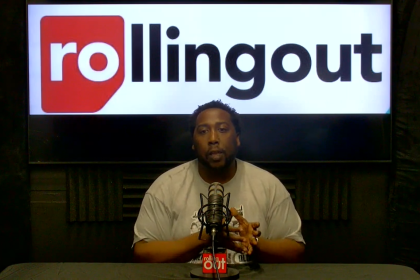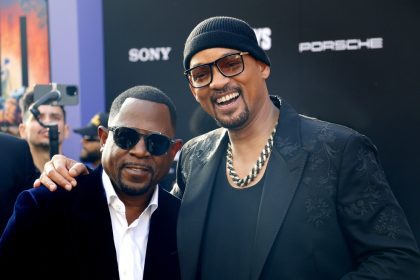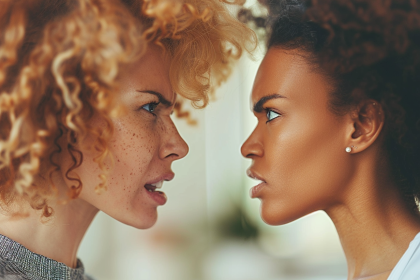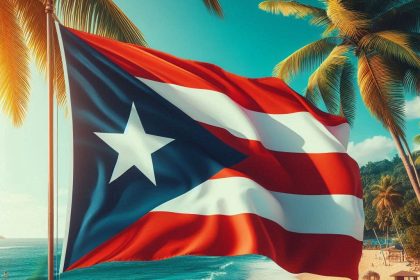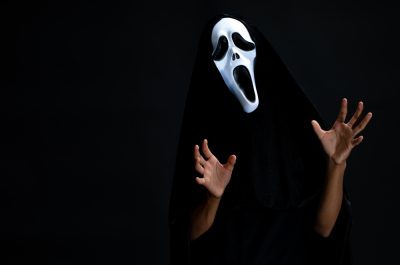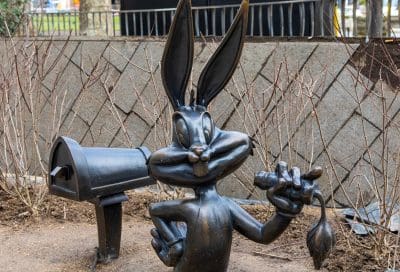
Racism is a Caucasian illness that people of color have been saddled with the burden of curing. For centuries, the spread of this disease has been meticulously planned and nurtured in churches, neighborhoods, schools and executive board rooms occupied exclusively by Caucasians. In those monochromatic spaces, there have always been Caucasians who knew the racist actions/intentions of their fellow citizens were morally incongruous with the laws of human decency, but all too often those individuals kept their objections to themselves. The myth is that racism is still alive and well because of White supremacist groups. Nothing could be further from the truth. Racism runs on the fuel of White silence. White silence is the refusal of socially aware, non-racist Caucasians to aggressively protest racism.

“If you are silent in the face of racism, you are no better than the person exhibiting the racist behavior. In this case, silence is NOT golden. Injustice will continue to occur unless we (Whites) address the problem when we see it.” Adam Nissen, Mount Carmel High School History Teacher
Opposing racial injustice is a lonely and dangerous place. While people of color have lived in that lonely and dangerous place in American society since its inception, it is a foreign land to most Caucasians. And for those Caucasian activists who have traveled to that land, some of them have never returned: Andrew Goodman, Viola Liuzzo, Pastor James Reeb and Michael Schwerner. But loss of life is not the primary concern/fear preventing morally upstanding Caucasians from speaking truth to power in present day America. Their primary concern/fear is what they must sacrifice to take that stand: privilege.

“The cost of being uncomfortable (loss of privilege) is more important to them (Whites) than the benefits of doing what is right.” Grace Woo, Registered Nurse at Vanderbilt University Medical Center
When Caucasians take stands against racism, they are rejecting their White privilege. White silence allows Caucasians to keep a seat at the table of White privilege while providing them with the peace of mind/plausible deniability of not being active participants in racial oppression. And the advantage of having a seat at that table is the difference between walking the red carpet and having to enter through the kitchen. Speaking of red carpets, Hollywood is a prime example of White Silence at work. How many of this year’s Academy Award nominees have addressed the issue of racial exclusion? Without a doubt, there are more nominees than Matt Damon and Mark Ruffalo who know that Hollywood has a race problem, but the others may be weighing what they could lose if they speak out against the very people who control their livelihood. On the evening of the Academy Awards, the nominees will smile, applaud and pretend that Hollywood has no race problem. But then again, is it pretending if you truly believe that racism does not affect your life?

“I think that a lot of White people are able to stay silent because their everyday life isn’t impacted by the injustice that they rationally know is happening around them.” Avery Miller, Paralegal
Many Caucasians see racism as an issue for people of color, because racism does not affect their Caucasian existence. Their children do not have to attend underperforming schools. They are not victims of police harassment and brutality. Generational poverty and illegal imprisonment are not chapters in their social narrative. Therefore, it becomes simple for socially aware, non-racist Caucasians to ignore the evils of racism, because it has not encroached upon their world.
The cure for racism rests in the hands of Caucasians. But as long as White Silence prevents socially aware, non-racist Caucasians from addressing the sickness, nothing will change. The cycles of oppression countered by the activism of the oppressed will continue. People of color will address the many tentacles of racism with little to no assistance from Caucasians who would rather stand on the side of road watching a protest and telling themselves and their children that it is just another parade.

